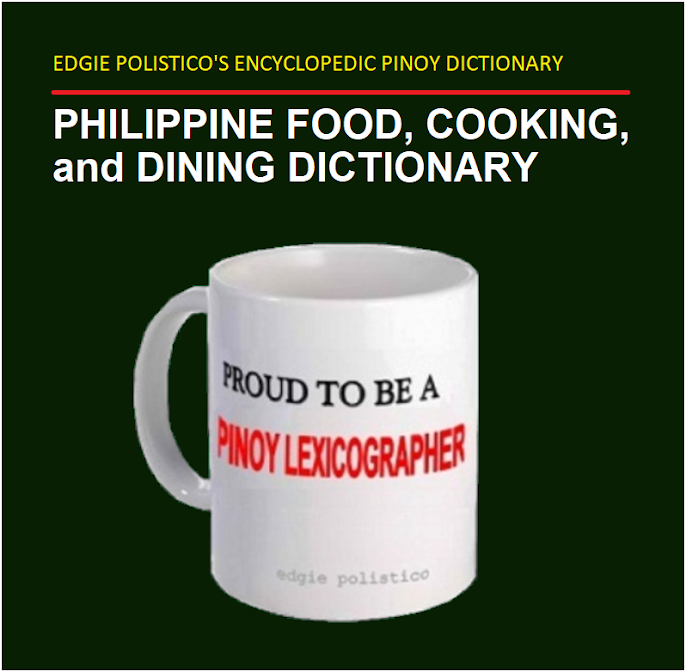watermarked.jpg) |
A serving of chopsuey at the Dwino's Grill in OzamisCity, Misamis Occidental during one of my travels in the southern part of mainland.
chopsuey – /tsàp-soy/ (Tagalog, Cebuano, Ilonggo dish; dw Chin. tsa-sui [various pieces]) [n.] stir-fried vegetable.
These stir-fried vegetables can also be added to seafood and meat at will.
An assortment of cut vegetables is stir-fried and mixed with seafood (shrimp, squid, fish fillet, etc.) and sliced meat (pork or chicken).
The kind of vegetables conventionally used in making this dish are wide cuts of repolyo (cabbage), widely sliced carrots, sayote (mirliton pear), cauliflower, sliced bell pepper, and sometimes with sliced tomatoes and green pods of beans, such as sitsaro (snow peas), sitaw (string beans), or Baguio beans.
 |
A serving tray of chopsuey one summer day of May 2012 while at the beach resort of AcuaVerde in Laiya Aplaya, SanJuan, Batangas. |
Its thick white sauce is made with water (or broth) added with some gawgaw (tapioca powder) or corn starch that is pre-dissolved in lukewarm water then added and stirred in the dish and seasoned with patis (fish sauce) or oyster sauce.
+watermarked.jpg) |
This chopsuey seafood is of Sam's Fastfood & Bakeshop during my trip in May 2011 to Pagadian City of Zamboanga del Sur also in the southern part of mainland Mindanao. |
Occasionally, when available, chopsuey has young corncob, broccoli, mushroom, and coriander added to the ingredients.
This dish is a Chinese-American-influenced dish that is now commonly found in Pinoy eateries and gatherings.
All photos by Edgie Polistico in this blog are copyrighted. ALL RIGHTS RESERVED.
If you liked this post and our site, share it.
Let us know your opinion on the subject. Feel free to comment in the comment section, below. It is important for us to know what you think.
Tell us what other topics you would like us to write, share, and discuss about.
For more about Filipino food, see this Philippine Food, Cooking, and Dining Dictionary. It is OPEN and FREE.
Continue to follow my blogs. You can also follow and learn more by joining us in our Facebook group. Have more bits and pieces about our kind of food, ingredients, and ways of cooking, dining, and knowing food culture across the 7,641 islands of the Philippines. I will search for more and continue to share my findings. It is my pleasure to rediscover the known and least known things or the unheard ones and put them here for everyone to find, learn, and treasure.
Encouragement and enthusiasm are not enough. I also need moral support, prayers, and anything else that can uplift my spirit and keep my good reasons. Keep them coming. All I know is that I am happy with what I am sharing and giving away. If you are pleased and happy with what I am doing, just smile and please share the happiness. Keep sharing and include to share the PHILIPPINE FOOD ILLUSTRATED. I feel energized when my blog becomes one of the reasons why you are happy and smiling.
Edgie Polistico



+watermarked.JPG)








